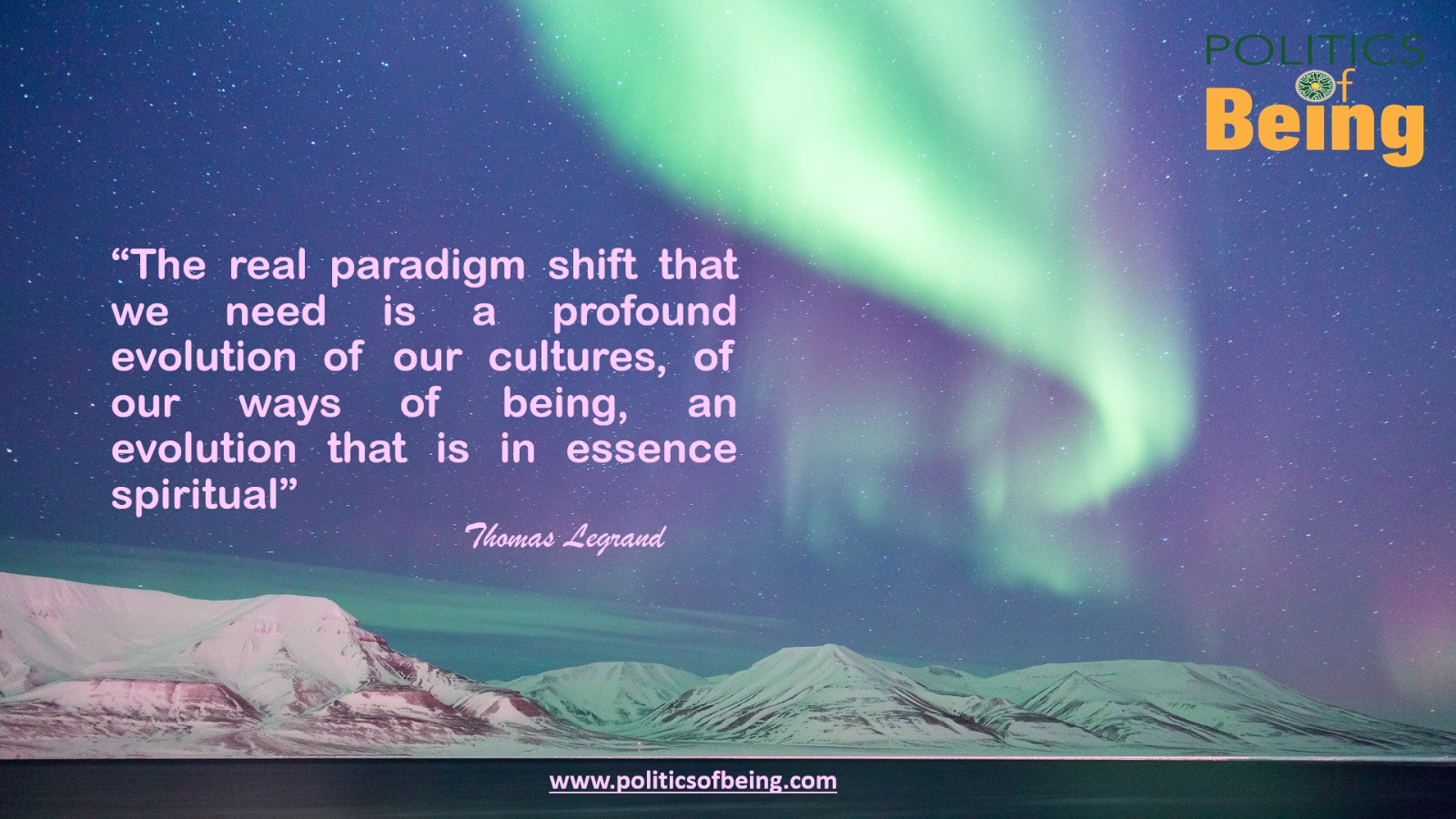
The real (deep) paradigm shift we need
As we grow aware of the systemic nature of our problems, everybody talks about the need to shift our paradigm. In books or reports dealing with our current global issues, you will often find this quote from Albert Einstein: “You can’t solve a problem with the ways of thinking that created it.” In my professional field of environment and climate change, I have come across this quote time and time again. Ironically, the different solutions or “new paradigms” most often proposed only represent a minor deviation from our current development paradigm and, as such, are doomed to fail, just like Einstein said! The Green Climate Fund, the main UN financial facility for addressing climate change, seeks to promote a “paradigm shift to low-emission and climate-resilient development.” But, is this really addressing the root causes of our climate crisis? How is this challenging our cultural operating system based on what Charles Eisenstein calls the story of separation? Theoretically, it could go on in a low-carbon world. It often seems as if the proposed solutions could prevent us from making the fundamental paradigmatic shift we need : “Everything needs to change, so everything can stay the same.”[1]
This relative confusion around paradigms also has to do with the plurality of definitions associated with this notion. Among these are (i) an example or archetype (a low-carbon economy could fit here), (ii) a philosophical or theoretical framework that defines what is scientifically valid, and (iii) a cultural framework that shapes our perceptions, defining and limiting the future we can imagine.[2]
The real paradigm shift that we need has not only to do with new models or new ideas but is fundamentally a profound evolution of our cultures, of our ways of being. This evolution is in essence spiritual: it has to do with the very meaning and priorities of our existence, which should be reflected in recognizing “being” (becoming who we are, the best version of ourselves, our “interbeing” nature) instead of “having” as our main collective goal. Why don’t we get to the bottom of things and recognize that the new paradigm needs to be essentially spiritual, with all other paradigmatic changes as mere reflections of it?
My book “Politics of Being” proposes to recognize the fundamental direction of this change, set the horizon, and discuss how we can move forward with all relevant ideas and solutions. Those that I have identified often stem from fields of thought that have themselves paradigmatic pretensions such as integral/systemic/complex thinking, life/ecology, happiness, empathy/compassion, culture of peace/partnership, etc. While they often seem disconnected from each other, they all fundamentally relate to this new (inter)being development paradigm. A politics of being has the potential to unify and strengthen this emerging new paradigm and translate it into a whole new development and policy agenda with actionable policy reforms in many sectors.
[1] Famous quote from The Leopard, an Italian movie.
[2] https://www.merriam-webster.com/dictionary/paradigm, accessed August 6, 2020.
